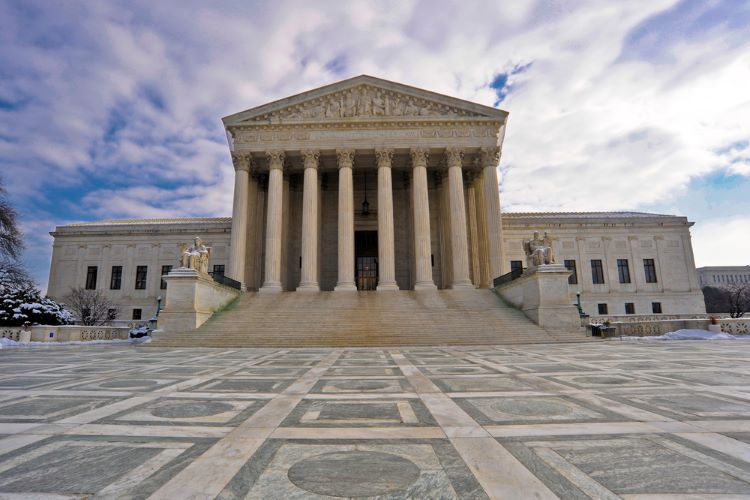ABA applauds vote for compromise criminal justice reform bill on sentencing

Shutterstock.com.
ABA President Bob Carlson is praising plans for a vote on a compromise criminal justice reform bill that shortens some sentences and gives judges leeway to bypass mandatory minimum sentences in more cases.
Carlson thanked House and Senate leaders for their work to advance the bill, known as the First Step Act, in letters here and here on Wednesday.
“We recognize that more work still needs to be done in the criminal justice arena,” Carlson said in the letters, “but passing the act in the House and the Senate, and signing it into law this year, would be an important ‘first step’ in the process.”
President Donald Trump endorsed the First Step Act last month, saying it contains “reasonable sentencing reforms while keeping dangerous and violent criminals off our streets.”

ABA President Bob Carlson
The bill shortens some sentences, including a reduction in the sentence for third-strike crimes from “life imprisonment without release” to “a term of imprisonment of not less than 25 years.” The bill also allows more offenders to qualify for “safety valves” in which judges have the authority to bypass mandatory minimum sentences. Another provision in the bill allows offenders to apply for retroactive application of a 2010 law that reduces the sentencing disparity between crack and cocaine offenses.
The bill also allows inmates to earn credits toward early supervised release by completing programs to reduce recidivism. Many of the changes in the compromised bill announced Wednesday bar several types of offenders from receiving the credits, including people convicted of gun and fentanyl trafficking, Courthouse News Service reports. A summary of the changes is here.
In his letter to congressional leaders, Carlson said the ABA does not support “several provisions and omissions” in the legislation, but the association thinks the bill “represents positive and necessary improvements to the federal criminal justice system.”
“For example, while the ABA does not support mandatory minimum sentences, we support the expansion of the federal safety valve for mandatory minimum sentencing under the act to allow judges the option to sentence low-level offenders to less time in appropriate cases,” Carlson said.
“We support the act’s proposal to allow prisoners who were sentenced before the Fair Sentencing Act of 2010 had reduced the 100-to-1 disparity in sentencing between crack and powder cocaine to petition the court to have their sentence reviewed considering that change. The ABA further supports the expansion of recidivism-reducing programs, ‘compassionate release’ for the elderly and terminally ill, and the elimination of sentences of life without parole and solitary confinement for juveniles.”
The ABA also supports Second Chance Act provisions included in the reform bill. “The Second Chance Act provides needed support for cost-effective programs in 49 states and the District of Columbia to help men, women and juveniles successfully transition from correctional confinement to productive members of their communities,” Carlson wrote. “Supported programs accomplish this through a focus on proven strategies such as housing and jobs programs.”
Updated at 2:20 p.m. to change headline.



